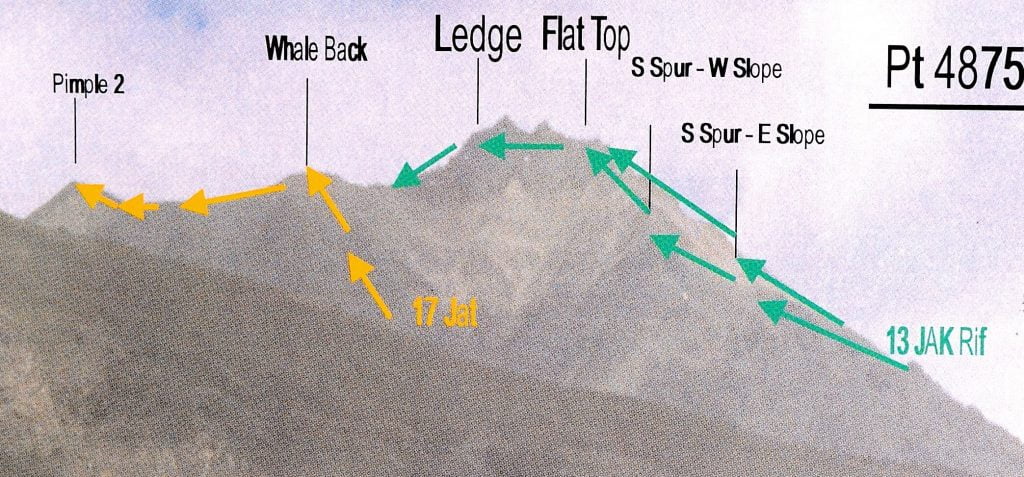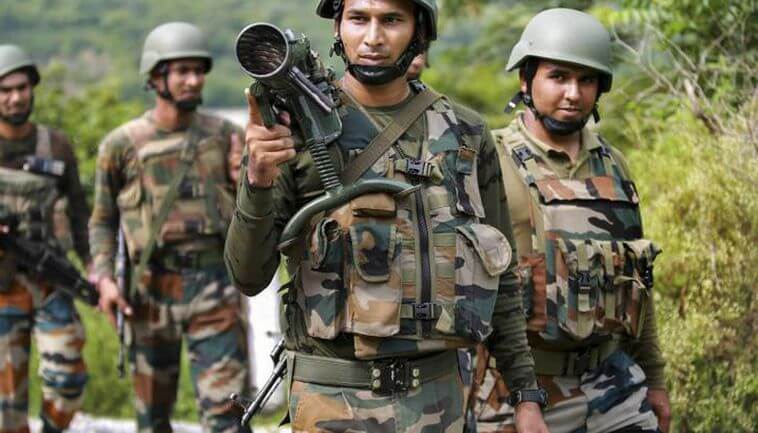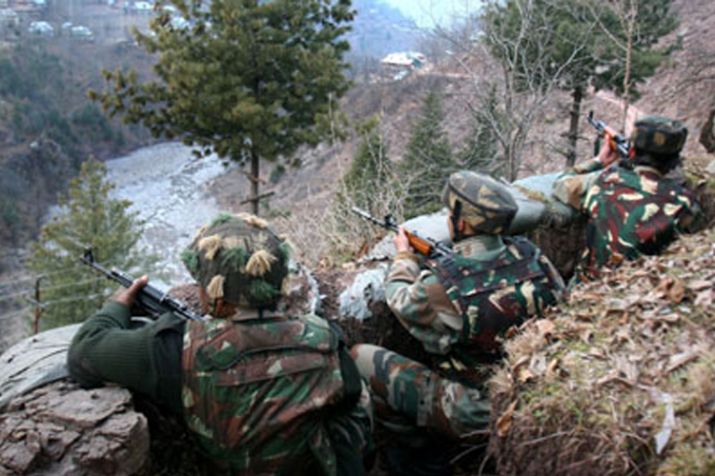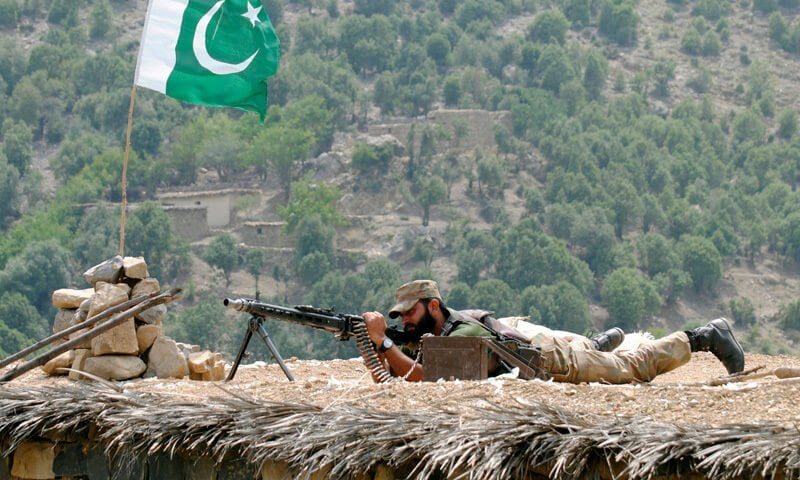The inside story: Mashkoh– Kargil as I saw it # 17
By
Brig Umesh Singh Bawa Vrc, SM

Commanding officer 17 Jat had tasked D company under Major Deepak Rampal to capture whaleback objective. It was estimated to be held by a section (approx. 10 men) and required at least one company (approx. 80 men) to capture.
D Company Attack
At around 2130 hours on 04 Jul 1999, when D company was forming up for the attack on Whaleback, one of the artillery shells landed near the assaulting troops, injuring one JCO and six brave soldiers. Six casualties at the beginning of the assault were enough to lower the morale of the assaulting troops. The attack was stalled even before it started. The company commander was shaken up by this loss and wanted to postpone the assault. I ordered him to reorganise his platoons and press on with the assault as per plan without any delay. I emphasised once again that under no circumstances the attack should stall and the momentum of the attack be maintained at all cost. Since the leading platoon had suffered casualties, the company commander decided to employ another platoon under Lt Shamsher Singh to lead the assault to capture Whaleback.

The enemy continued to engage our troops with both artillery and small arms fire. The enemy had constructed four sangars on the Whaleback and deployed machine guns at dominating heights to stall the movement of attacking troops. Despite all odds, the leading platoons continued with their assault. The enemy, after stiff resistance realised that his position was getting untenable, fled behind, leaving some dead bodies and few weapons. Whaleback was secured by 0500 hours 05 Jul. Four enemy dead bodies were recovered along with two machine guns (UMGs), from the objective and three enemy sangars were destroyed during the battle.

Nk Balwan Singh, the leading section commander assaulted the sangar, threw grenades into it, killing two enemy soldiers – a courageous act for which he was awarded Sena Medal (gallantry). After the bunker went silent and he was able to look around.
Nk Balwan Singh and his section could not believe the sight behind the bunker. He saw the dead Pakistani soldiers without their heads, including one who probably bled to his death, holding on to his wallet with his family’s photo. Another injured Pakistani soldier screaming to be killed so that his family could claim a martyr’s compensation which would feed his family. Another Pakistani soldier’s body was completely tangled in place which probably was their weapons dump. The artillery bombardment did all this. When he turned around towards the Indian casualties, the picture was equally grim. A dead Indian soldier as young as 21 and did not even have a chance to place his finger on the trigger. Some were screaming with pain; some had shrapnel cuts through their stomach and lay embedded inside, causing instant death. Some just lay dead on the objective.

As dawn broke, the enemy on Point 4875 brought down fire against our troops on Whaleback. Our casualties began to mount. Murderous bursts of machine-gun fire hammered our position. Rounds snapped inches above our troops. RPG rockets followed in a rapid sequence of three to four, exploding with a tremendous concussion against the rocks. The troops were separated from the bone-jarring explosions and deadly shrapnel by a meter or so. Despite the onslaught, D company held on to their positions.
At 0800 hours, Lt Shamsher Singh who was on the forward slopes of Whaleback observed some enemy troops approximately twenty of them regrouping and forming up for a counter-attack at a distance of just 300 meters. He informed the company commander about it. The company commander started sending save our souls (SOS) calls on the radio to me for sending more ammunition and reinforcements, as the enemy counter-attack was imminent. The radio communication was interrupted frequently by the Pakistani Army. They cut in with sophisticated jammers to blank our radio sets. Sometimes, mujahidin and Pakistani soldiers shouted curses and war cries. I decided to send one platoon (25 men) of C company, which was available at my location, along with additional ammunition to overcome the present crises.

In the meanwhile, Major Rampal, without wasting time, went ahead with a few of his selected men to take stock of the situation on Whaleback. Major Rampal’s party was subjected to heavy artillery shelling, but he came out unscathed from the barrage of fire. However, his radio operator was severely injured. Major Rampal took the radio set on his back and sent his operator back to get first aid from the regimental aid post (RAP) established by my medical officer. Few others were also injured, but they volunteered to carry on with their minor injuries as they knew that Lt Shamsher’s platoon was in dire need of their help. The forward observation officer, Capt Gildiyal, was requested to bring down heavy artillery fire on the enemy regrouping for the counter-attack. Screaming shells started falling all around as they rained vengeance on the enemy. Rounds fell just 100 meters away from Whaleback forward slopes. The enemy soldiers in the open were taken entirely unawares. They started falling one by one like a pack of cards. Capt Gildiyal meticulously kept track of where the round was falling and made minor adjustments to correct the range. The enemy launched a meek counter-attack at 0830 hours, but it was beaten back by Lt Shamsher and his troops with grit and determination.
In the meanwhile, I called Capt Anuj Nayyar of C company and asked him to take one platoon as reinforcements to Whaleback along with additional ammunition immediately. Anuj’s face radiated courage and showed no fear. He slipped off his engagement ring and took his wallet out of his pocket. He opened it and looked briefly at the picture of his fiancée, a pretty schoolmate he fell in love with at Army Public School. He handed over both his ring and the wallet to the adjutant saying “sir, will you please keep it with you, I will take it back once I come back from the operations.” I told him to wear the ring as it would inspire him to perform with more courage. However, Anuj says, “sir, the ring is precious to me, and I do not want it to fall into the dirty hands of the enemy. Please keep them till I come back”. The adjutant agreed to his little demand and kept the ring and the wallet with him. Before Anuj left, I told him, “only fortunate ones get a chance to participate in war at such a young age. I had to wait for twenty years to see this day. Either you fight bravely and make a name for yourself and be remembered as a hero of war or be branded as a coward for future generations to remember. The choice is completely yours”. I could see the raw courage within him wanting to explode anytime. I knew that the young Anuj showed promise and was destined for glory.
Anuj left for his task along with his platoon and reached Whaleback by 1200 hours. At that time enemy was preparing to launch another counter-attack on Whaleback. The ammunition brought by Anuj was hurriedly distributed among the troops of D company. The LMGs were loaded again, and so were the other weapons. The forward platoons were again ready to receive the enemy. The enemy once again tried to wrest the initiative by launching another counter-attack at around 1300 hours. NK Balwan Singh employed his machine gun with deadly fire. He stood fearlessly braving the enemy fire as he unleashed three to five-round bursts from his weapon into the enemy concentrating for the counter-attack. He wanted the enemy to know that they no longer enjoy a safe haven here. This land was no longer theirs. We owned this ground. The counter-attack was again repulsed by D company.

After successfully beating back the second enemy counter-attack, Nk Balwan Singh was caught in the open by the enemy sniper fire from the neighbouring post and was pinned down behind a small rock. A machine gun burst hit on his back, and he was almost immobilised. Perhaps his spine was severely hurt. Major Rampal and others watched on helplessly as blood oozed out from the wounded soldier, slowly taking his life. Even in that hour of pain and distress, Nk Balwan managed to fire back at the enemy and shouted out to his troops, “Mujhe bacchane mat aao, main vaise bhi bacchne wala nahin hun. Tum log aao ge to dushman tumhe bhi target karega, Jat Balwant Jai Bhagwan”, this brave soldier slowly accepted the heroic death on the snowy mountains of Mashkoh valley. L/Nk Kishan Pal of the same platoon started crawling to retrieve his dead body. He was also hit by the enemy sniper and sacrificed his life for his buddy. Kishan Pal was about to retire and go back to his village with his wife and children, but he came to the village in a body bag. We would forever mourn their losses. You cannot find a better example of camaraderie and teamwork that you see between soldiers during the war. They are so emotionally bound to each other and would feel the pain of other comrades who have been injured. Armies have been victorious not because of individual acts of heroism but through creating the ultimate teams.
The onslaught of heavy enemy fire frequently continued throughout the day, with periods of intense violence and periods of calm. Our gunners also returned fire into enemy positions with devastating effect. D company was again ready to take on the enemy offensive. This time, the enemy launched a desperate counter-attack on Whaleback at 1700 hours, but that too failed miserably against the daunting Jats of D company. Finally, as it became dark, the enemy soldiers retreated to Pimple 2. As the day faded and the sun dipped below the horizon, the fire assaults diminished. Gunfire and explosions subsided. Whaleback was finally with D company now. The company repulsed three enemy counter-attacks. Major Deepak Rampal led his company in an exemplary manner and was awarded Vir Chakra for the same.
To know more about the Kargil war, read the book “Mashkoh: Kargil as I Saw It”.




